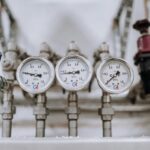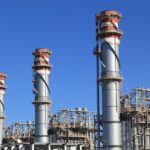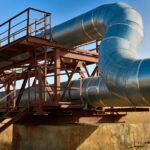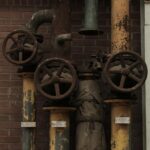Introduction: Heat exchangers are the unsung heroes of thermal engineering, facilitating the transfer of heat energy between fluids while maintaining temperature control in a wide range of industrial processes. Whether you’re a seasoned engineer or a fresh graduate aspiring to enter the field, mastering the fundamentals of heat exchangers is essential for success in interviews and professional endeavors. To help you prepare, we’ve compiled 50 insightful questions covering various aspects of heat exchanger theory, design, and application.
Certainly! Here are 50 heat exchanger-related questions that may be useful for interviews:
- What is a heat exchanger?
- Can you explain the basic principle of heat exchange in a heat exchanger?
- What are the primary types of heat exchangers?
- Describe the differences between a shell-and-tube heat exchanger and a plate heat exchanger.
- What factors influence the selection of a specific type of heat exchanger for a given application?
- What are the primary components of a shell-and-tube heat exchanger?
- How does counterflow differ from parallel flow in heat exchangers?
- What is the purpose of fins in a heat exchanger?
- How do you calculate the heat transfer area required for a heat exchanger?
- What is the purpose of baffles in a shell-and-tube heat exchanger?
- Explain the concept of fouling in heat exchangers and its impact on performance.
- What is the difference between sensible heat transfer and latent heat transfer?
- What is the significance of the LMTD (Log Mean Temperature Difference) in heat exchanger design?
- How do you calculate the LMTD for a given heat exchanger configuration?
- What are the advantages and disadvantages of a compact heat exchanger?
- Describe the process of thermal design for a shell-and-tube heat exchanger.
- What are the key considerations when selecting materials for heat exchanger construction?
- How do you determine the effectiveness of a heat exchanger?
- Can you explain the concept of thermal efficiency in the context of heat exchangers?
- What is the difference between a single-pass and a multi-pass heat exchanger?
- How does flow arrangement affect the performance of a heat exchanger?
- What are the common methods for enhancing heat transfer in heat exchangers?
- Describe the operation of a double-pipe heat exchanger.
- How do you calculate the overall heat transfer coefficient for a heat exchanger?
- What is the role of tube pitch in a shell-and-tube heat exchanger?
- Can you explain the concept of pressure drop in heat exchangers?
- How does the design of a cross-flow heat exchanger differ from that of a counterflow heat exchanger?
- What is the function of tube inserts in heat exchangers?
- Explain the concept of heat exchanger effectiveness and its significance in performance evaluation.
- How do you calculate the NTU (Number of Transfer Units) for a heat exchanger?
- What are the typical applications of regenerative heat exchangers?
- Describe the operation of a finned-tube heat exchanger.
- What is the difference between a condenser and an evaporator in the context of heat exchangers?
- How do you determine the tube diameter and length for a shell-and-tube heat exchanger?
- What are the factors that affect the overall efficiency of a heat exchanger?
- Describe the process of thermal analysis for a plate heat exchanger.
- What are the primary causes of heat exchanger failure, and how can they be mitigated?
- How does the temperature approach affect the performance of a heat exchanger?
- What is the role of flow velocity in determining heat exchanger performance?
- How do you calculate the effectiveness of a parallel-flow heat exchanger?
- What are the key differences between a cross-flow and a counterflow heat exchanger?
- Explain the concept of heat exchanger network design and its benefits.
- What are the safety considerations when operating and maintaining heat exchangers?
- How do you prevent corrosion in heat exchangers?
- Describe the process of cleaning and maintenance for a shell-and-tube heat exchanger.
- What factors determine the choice between a single-phase and a two-phase heat exchanger?
- How does the Reynolds number affect heat exchanger performance?
- What is the role of surface roughness in heat exchanger design?
- How do you calculate the heat duty for a heat exchanger?
- What are the emerging trends and advancements in heat exchanger technology?
Conclusion: Mastering the intricacies of heat exchanger theory, design, and application is essential for success in interviews and professional practice. By familiarizing yourself with these 50 insightful questions, you’ll be well-equipped to tackle any heat exchanger-related challenge with confidence and expertise. Whether you’re an aspiring engineer or a seasoned professional, the journey to becoming a heat exchanger expert begins with a solid understanding of the fundamentals. Make sure these questions are not only a scope of heat exchanger, explore more questions by yourself for make yourself confident and updated.















